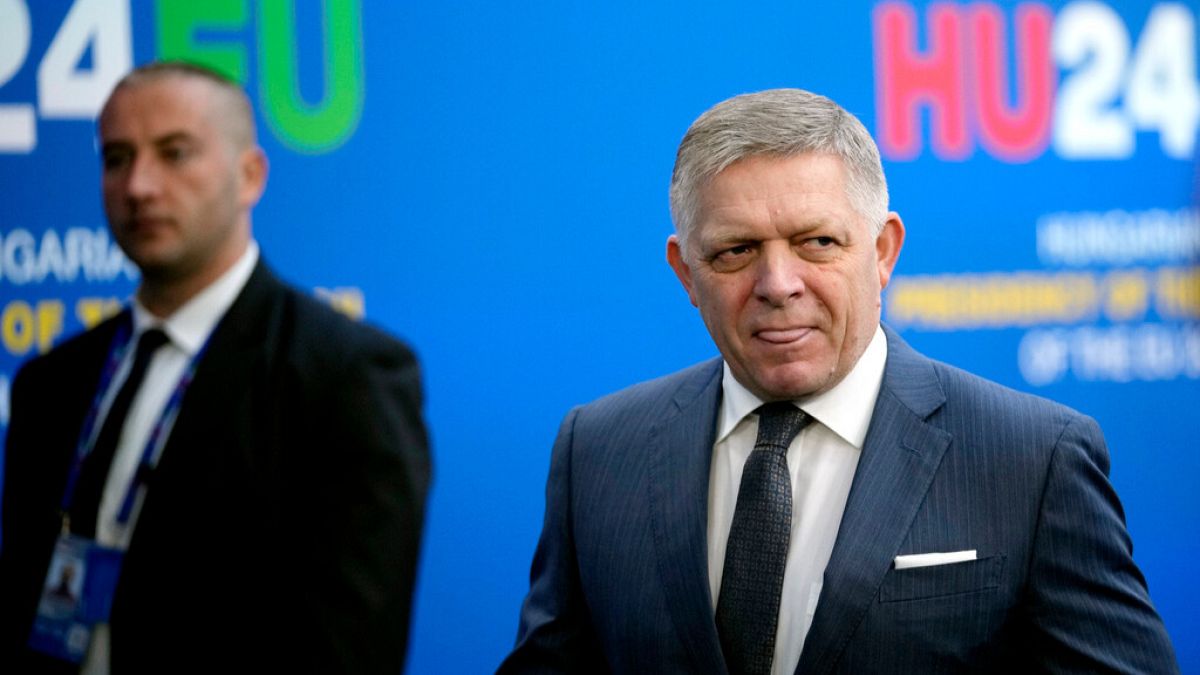Slovak Prime Minister Robert Fico has threatened to take retaliatory measures against Ukraine after Kyiv stopped the flow of Russian gas through its territory to Slovakia. Fico stated that his government was considering cutting financial aid for over 130,000 Ukrainian refugees in Slovakia, in addition to cutting electricity supplies to Ukraine. The move comes after Ukraine decided not to renew a five-year transit deal with Russian energy giant Gazprom, resulting in the halt of Russian gas supplies running through a pipeline via Ukraine to central Europe. The feud between the two countries has escalated, with Fico claiming that halting Russian gas will increase European gas prices and ultimately hurt the EU more than Russia.
Slovakia had been attempting to persuade Ukrainian President Volodymyr Zelenskyy to renew the gas transit deal in order to maintain the flow of cheap Russian gas supplies into Europe. However, Zelenskyy refused to renew the deal, arguing that it would not allow countries to profit off of Ukraine’s suffering. Despite Slovakia making substitute arrangements for gas supplies, the decision by Ukraine to halt the flow of Russian gas has resulted in significant losses in transit fees for Bratislava, amounting to €500 million. As a result, Slovakia has signed contracts to buy natural gas from Azerbaijan and import US-sourced liquefied natural gas via Poland, in addition to receiving gas through other pipelines. Fico has claimed that the end of the deal will cost the EU €120 billion over the next two years, while Moldova has declared a state of emergency over anticipated gas shortages following the agreement’s end.
The European Commission has stated that Europe has prepared for the change and that most states will be able to manage without Russian gas supplies. Poland has called the end of the deal a “victory” against Russia, while Fico, who has maintained friendly ties with Moscow, visited Russian President Vladimir Putin to discuss gas supplies and threatened to halt backup electricity supplies to Kyiv. In response, Poland has expressed readiness to increase energy exports to Ukraine to compensate for potential losses by Slovakia. Zelenskyy has accused Fico of helping fund the war and weaken Ukraine, stating that Fico’s efforts to continue the deal amount to opening a “second energy front” against Ukraine on Russia’s orders. The situation highlights the complex interplay between energy dependence, diplomatic relations, and regional geopolitics in Europe.
The decision by Ukraine to halt the flow of Russian gas has led to a sharp escalation in tensions between the two countries, with Slovakia considering retaliatory measures against Kyiv. Fico’s threat to cut financial aid for Ukrainian refugees in Slovakia and potentially halt electricity supplies to Ukraine reflects the severity of the situation. Despite Slovakia making alternative arrangements for gas supplies, the decision by Ukraine has resulted in significant financial losses for Bratislava. Additionally, Slovakia has signed contracts with other countries to secure gas supplies, but the end of the gas transit deal is expected to have broader implications for the EU as a whole.
The European Commission has stated that Europe has prepared for the end of the gas transit deal and that most states will be able to manage without Russian gas supplies. Poland has welcomed the end of the deal as a victory against Russia, while Fico’s threats to cut financial aid and electricity supplies to Ukraine have further strained relations between the two countries. Zelenskyy has accused Fico of supporting Russia’s war efforts and weakening Ukraine, emphasizing the critical role that energy diplomacy plays in regional politics. The situation underscores the challenges of balancing energy security, economic interests, and political relationships in a complex geopolitical landscape.
Fico’s efforts to continue the gas transit deal with Russia, despite opposition from Ukraine, highlight the delicate balance that countries in the region must navigate to ensure energy security and maintain economic stability. The decision by Ukraine to halt the flow of Russian gas has significant implications for Slovakia and the broader European Union, with potential economic repercussions and diplomatic fallout. As tensions escalate between the two countries, the situation underscores the interconnected nature of energy politics, regional relations, and global power dynamics. The ongoing dispute serves as a reminder of the complex challenges that countries face in managing energy resources, navigating geopolitical rivalries, and balancing competing interests in an increasingly interconnected world.











